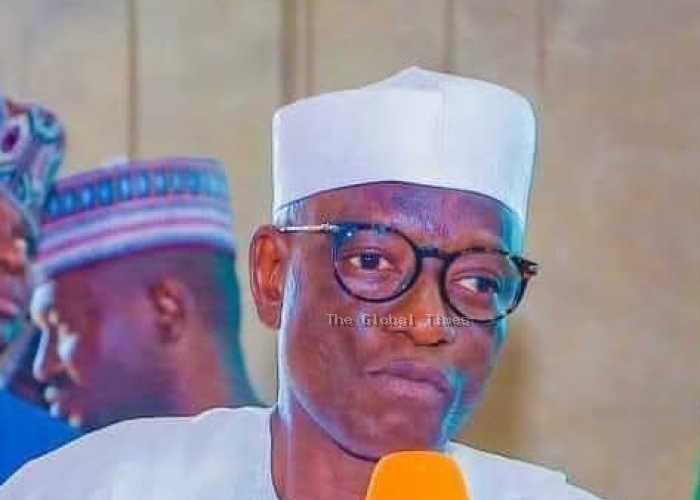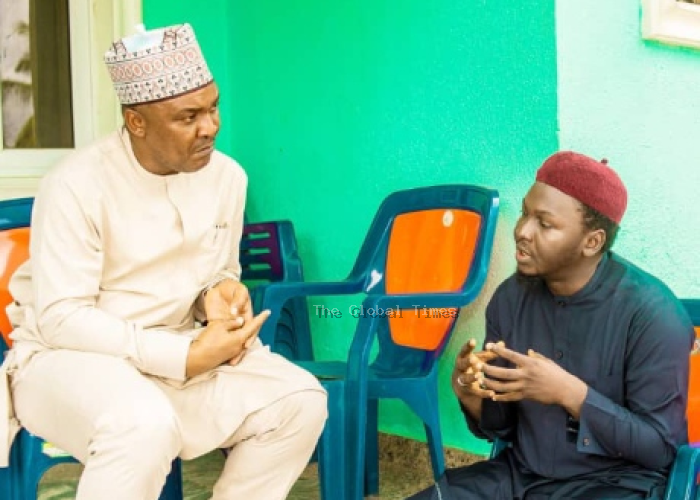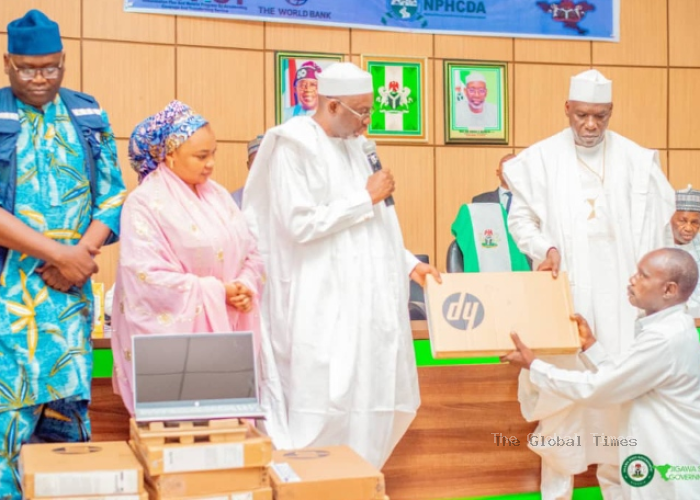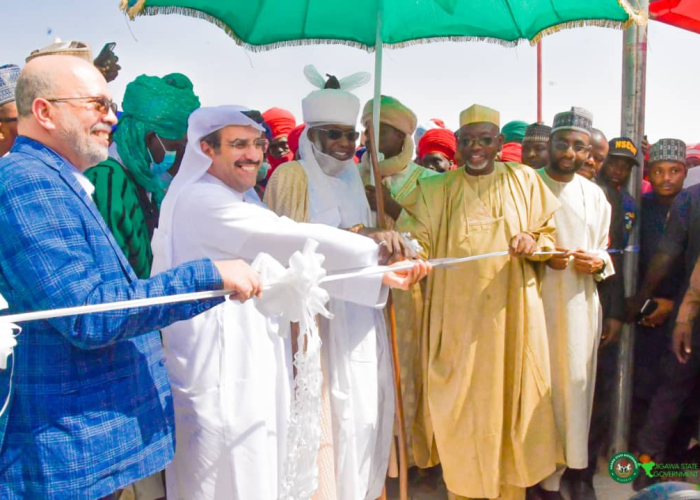
World food summit calls for agricultural transformation and job creation for youths and women

From Tahir Muhammad, Dutse
The annual Africa Food Systems Forum which took place in Kigali, Rwanda, from September 2 to 6, 2024, has called on African countries to transform agriculture to ensure the availability of food and nutrition security in Africa, while creating jobs and opportunities for youth and women.
The summit being the world's largest annual summit on agriculture and food systems on the continent. This year, the summit assess progress and reinforce commitments to transform agriculture in driving the agricultural sector to mechanization to boost food security and renewable energy, which is in goal 7 of the Sustainable Development Goals, calling for affordable, reliable, sustainable, and modern energy for all by 2030.
Attended by a high-level panel discussion on the Economic Community of West Africa (ECOWAS) Policy Framework, focusing on governance and sustainable solutions within the agricultural sector. Also in attendance was the jigawa state Governor Umar Namadi alongside five delegations from jigawa state.
This year's summit spotlighted the continental agenda on food systems and showcased innovative approaches, solutions, proven business models, best practices, and the latest technologies that could transform agriculture and food systems to ensure food and nutrition security in Africa, while creating jobs and opportunities for youth and women.
The five-person delegation from Jigawa led by Governor Namadi consists of government officials spearheading the government's efforts in driving the agricultural sector to mechanization to boost food security and renewable energy, which is in goal 7 of the Sustainable Development Goals, calling for affordable, reliable, sustainable, and modern energy for all by 2030.
The crux of the summit was among the two components in the administration's 12-point agenda documented as a blueprint for the state's development. Jigawa's slim delegation, with the officials in attendance, anticipated the potential benefits garnered from such a summit, which would resonate in the state. It could have been a missed opportunity for Nigeria if Governor Umar Namadi had not attended the summit, as the state is a focal point of reference driving the nation's food security.
Jigawa, under Governor Namadi, has invested in wheat, hibiscus, sesame, and gum Arabic production and is pivotal in Nigeria’s journey towards food security and economic prosperity. Last November, the state hosted the National Wheat Development Programme. The federal government cultivated 100,000 hectares of wheat this dry season as part of President Bola Tinubu’s Renewed Hope Agenda.
At the high-level panel discussion on ECOWAS policy frameworks, Governor Namadi participated in a high-level panel discussion on the Economic Community of West Africa (ECOWAS) Policy Framework, focusing on governance and sustainable solutions within the agriculture sector. The discussion examined the impact of ECOWAS policies on governance and sustainable agricultural practices.
Panelists included Dr. Henry Musa Kpaka, PhD, Minister of Agriculture & Food Security, Sierra Leone; Mr. Dominique Dedegbe, Head of the Technical Unit for Monitoring & Supporting Food Security, Ministry of Agriculture, Benin; George Boahen Oduro, Technical Advisor to the Minister for Food and Agriculture, Ghana; and Mr. Abdoulaye Traore, Director of Small and Medium-Sized Agro-Industries, Ministry of Agriculture, Côte d'Ivoire. Mrs. Binta Toure Ndoye, a board member, moderated the panel.
At the summit, Governor Namadi met with the African Development Bank (AfDB) team, led by Dr. Martin Fregene, Director of Agriculture and Agro-Industry. The discussion focused on digitalizing the agricultural value chain in Jigawa State to enhance the availability of agricultural inputs for smallholder farmers. The AFDB is committed to supporting Jigawa State in developing strategies to leverage ICT and emerging technologies to boost agricultural productivity, reduce costs and waste, improve market access, and modernize the agricultural sector.
Key performance
indicators (KPIs) for the plan include enrolling 2 million farmers in digital databases (e.g., National Identity Number System, Jigawa Agric Information System, Bank Account Number). Mapping and clustering up to 3 million hectares of farmlands using Geographic Information System (GIS) Issuing Certificates of Occupancy (Digital Farm Passport and Print Certificates) Connecting farmers with essential service providers through a digital marketplace platform.
Governor Namadi called on former President Dr. Goodluck Ebele Jonathan GCFR, where they discussed national and global development issues. He also met Joseph Nsengimana, Centre for Innovative Teaching and Learning Director at MasterCard Foundation. The Jigawa team explored ways of expanding partnerships for education transformation, agricultural innovation, youth empowerment, and the development of SMEs in Jigawa state.
."Our focus was on initiatives that will enhance food security, drive digital transformation, uplift education standards, and address the issue of out-of-school children," Governor Umar Namadi said"
On the last day, Governor Namadi led the Jigawa State delegation to visit Rwanda EQUIP, a program aimed at transforming Rwanda’s education system. Jay Kimmelman, CEO of NewGlobe, presented findings on learning poverty in Jigawa from a July 2024 study, with plans to implement a similar program in Jigawa State.
The Governor then held a bilateral meeting with the President and Chairman of AGRA (Alliance for a Green Revolution in Africa), advocating for Jigawa to be selected as an AGRA state. AGRA leadership expressed strong interest in Jigawa's agricultural transformation, pledging their support for Governor Namadi's commitment to improving smallholder productivity and modernizing agriculture.
He also met Prof. Catherine L. Nakalembe, Director of NASA's Harvest Program, to discuss solutions for flooding and drought challenges in Jigawa. She committed to providing technical assistance, including satellite and remote sensing technology, to help with climate-related agricultural issues. The Governor then attended the closing ceremony of the Africa Food Systems Forum 2024 with global leaders like UN Deputy Secretary-General Amina J. Mohammed and the Prime Minister of Rwanda.
The summit emphasized collaboration and innovation in tackling global food security challenges. Governor Namadi rounded up his mission by meeting Ms. Safi Boly, Executive Director of the African Agricultural Transformation Initiative (AATI), to plan the establishment of an Agric Transformation Office in Jigawa, modeled on similar initiatives in Tanzania and Sierra Leone, with the goal of positioning agriculture as a key driver of economic growth and poverty reduction.









